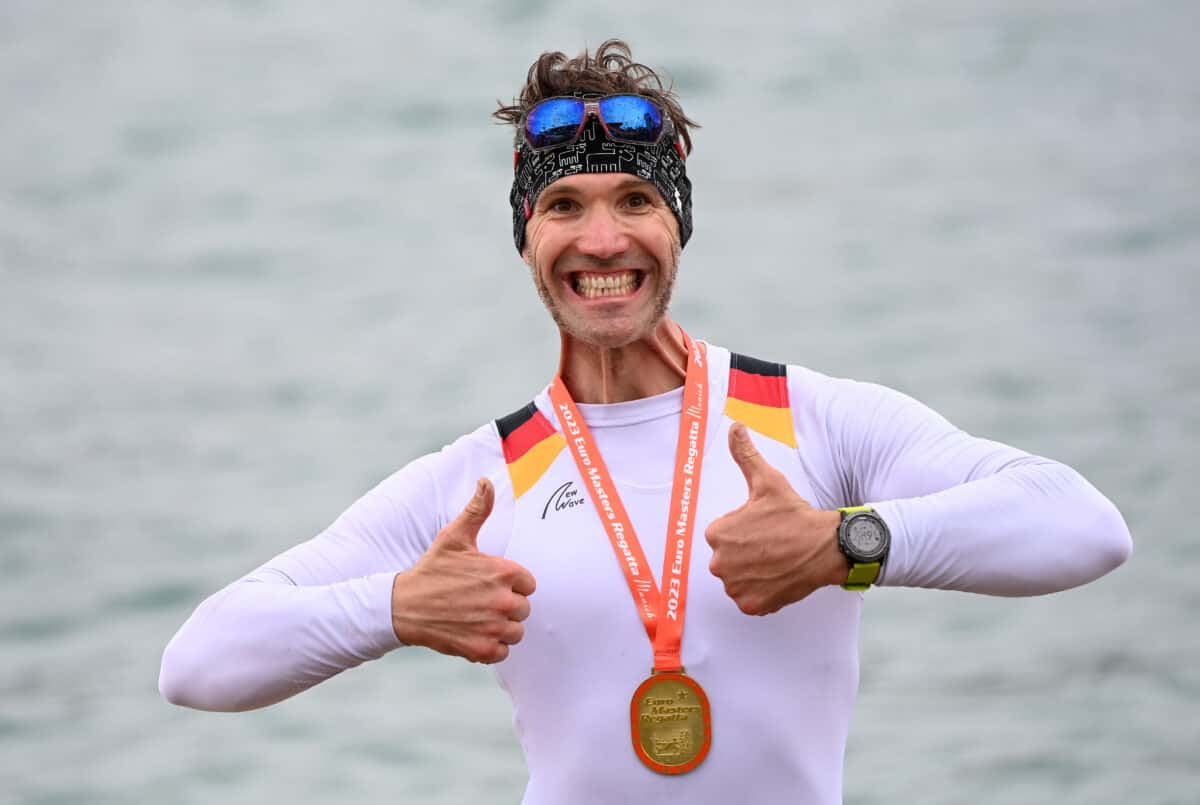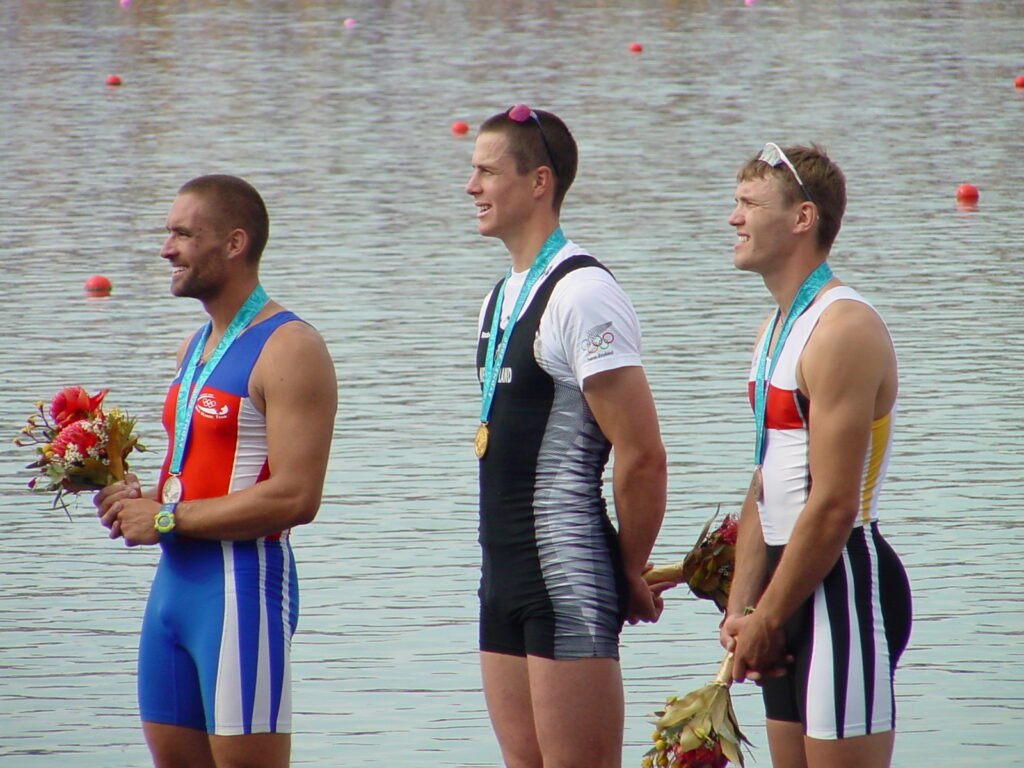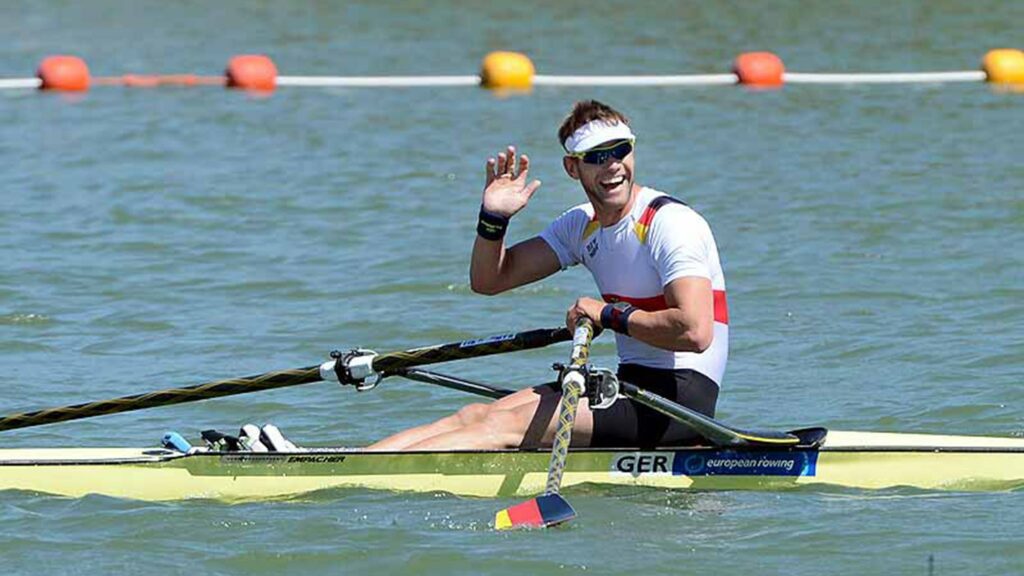
03 Jul 2024
Where are they now: Marcel Hacker
For a decade and a half, Marcel Hacker was Germany’s top single sculler. No other sculler was able to push him from this spot during a competitive career that lasted 25 years.
Starting at the age of 13, Hacker rowed competitively until he was 39.

Hacker grew up in the former East Germany and first crossed paths with rowing as a 10-year-old. It wasn’t until after the merger of Germany that rowing took off for the teenager. And take off it did. Rowing for Germany at the World Rowing Junior Championships, he struck gold his first year in the quadruple sculls, and then in the single in his second year. The propelled him into the under-23 ranks where he continued to medal making the senior team as a 20-year-old. At his first Olympic Games – Sydney 2000 – Hacker took bronze in the single.
He followed this up with a winning streak that lasted 41 races between 2001 and the 2003 World Championship final.
Through his rowing career Hacker saw himself as a bit of a rebel. He was a larger-than-life character, saying exactly what he felt and for a period of time sporting a shaved head and big attitude. Rowing the single he established an independent path that did not always fit in with the structure of German Rowing. For a period he set himself up with coach Andreas Maul at the Munich Regatta course, away from the national team structure.
After his debut success at the 2000 Olympics, 2004, and 2008 Olympics were not so triumphant with Hacker finishing seventh in both. This led to Hacker changing coaches after Beijing and he started working with a psychologist. The psychologist was Katina, she became his mental coach and later his wife.
Hacker raced at a total of five Olympics finishing up at the Rio Olympics in the double sculls. He announced his retirement on the day he returned to Germany from Rio. He stated at the time that he felt at ease; “I know where I stand with myself and I am proud of my achievements over the last 25 years.”
Hacker equates his longevity in the sport to three things: his success, the necessary talent, and a supportive coach. He also received the support of Deutsche Bahn. Germany’s national railway company trained him as a maintenance technician and he worked there until retirement from rowing. Hacker also attributes Bernd Stumpe to his success, receiving Stumpe’s support throughout his rowing career.

Ultimately, the goal of Olympic gold helped drive Hacker to stay at the top level for so long.
By the time Hacker decided to retire he says the decision was easy as it had been planned out.
“I had been preparing for it and I was able to go straight into professional life.” He also had a 6-year-old son that he hadn’t been able to spend a lot of time with.
Hacker noted too that his body was taking longer to recover.
“At 39, I was by far the oldest, the others were 11 or more years younger. I realised it was time to leave and the 2016 Olympics was a good time to stop. Thanks to Stephan Krüger, my doubles partner from 2015 – 2016, with whom I went through ups and downs.”
Hacker says he pulled some life lessons from his rowing years; “Subordination, determination, finishing projects quickly, recognising and implementing tasks quickly.
“If you fall, get back up and do it again.”
Hacker now works as a fitness and health trainer, taking care of health issues in the family business “RM Balance”. He rows very occasionally and helps as a masters rowing coach at his club, RuderClub Alter Werder 1887 E.V. in Magdeburg. He doesn’t get on the water much to row, but lately has been focusing on triathlon.
He keeps a keen eye on the goings on in the men’s single and has deep respect for those involved. Hacker notes the faster times on the ergometer and says, “I’m glad that I no longer have to row in this high-class field. Especially when I see the stroke rates, which get over 40.”
For Paris 2024, Hacker will be a commentator for rowing at Eurosport for the German-speaking countries.

